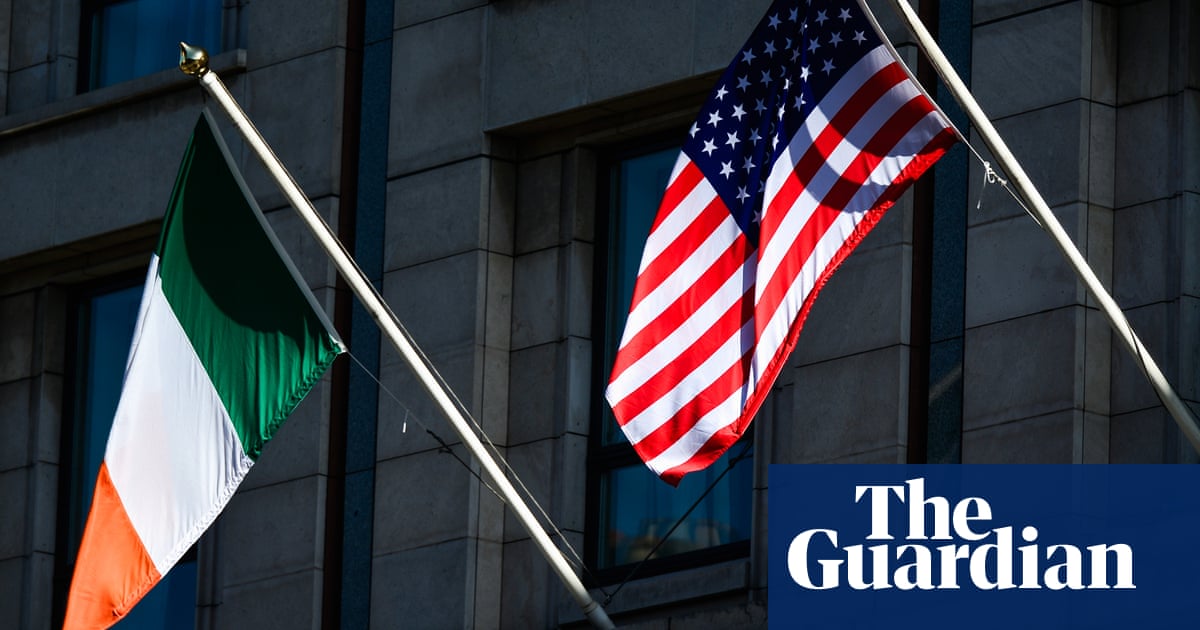More than 80 years since helping develop the nuclear bomb, Oak Ridge National Laboratory in the mountains of eastern Tennessee remains a critical piece of the US government’s research-and-development infrastructure.
Inside its walls lie the world’s fastest supercomputer; fusion, fission and neutron research projects; and thousands of expert scientists and researchers.
While keeping out hostiles and spies in the 1940s was a fairly one-dimensional task by modern standards, now, in a world of perpetual cyber-attacks, the online threat to places such as this has been amplified immensely.
Cybercrime could cost the global economy more than $23tn by 2027. The average cost of a data breach for a company in the US stands at more than $9m. For the federal government, whose enemies are far and wide, the stakes go far beyond money.
So, when in 2022 the people who run the laboratory turned to a four-year-old Irish startup called Tines to help keep out cyber-attackers, it marked a new departure.
“They’re operating the world’s most powerful computer, and they’re leveraging Tines to bolster their security infrastructure,” Eoin Hinchy, the Tines’ chief executive officer, said recently.
“For a long time, we held US-based technology companies on a bit of a pedestal. It wasn’t until I started working with US-based companies that I realized they were just like us.”
For decades, Ireland and Irish businesses in the US were more readily associated with agriculture and a world popularized by Hollywood’s depiction of rural Ireland. And for years, Irish products were largely on US store shelves, consisting of milk, butter and food supplements.
Tines and others are now showing that’s no longer the case.
With a population of just 5 million people, Ireland has surged to sixth globally for foreign direct investment in the US. That places it above economies such as Italy, South Korea and Mexico, nations with much larger populations.
On a recent trade mission to Boston and New York City, Irish companies operating in fields as varied as pharmaceuticals, business management and roadside travel plazas announced new offices and expansions in the US. Today, more than 900 Irish-owned companies are exporting to the United States.
“We’ve seen nearly a 60% increase in exports to the US over the last five years,” said Leo Clancy, the CEO of Enterprise Ireland, the Irish state’s economic development agency. “Last year, the US was our second-highest growth market after the UK.
“What I hear consistently from clients is that [US] buyers tend to be more loyal if the service is good, and that price is less of an issue if you are delivering really exceptional services and innovation.”
Leading that innovation is Manna Drone Delivery, a Dublin-headquartered drone company that last October began aerial deliveries in a residential community in Pecan Square, Texas. According to Manna, about 50% of the homes in the company’s area of operation have used the service.
“The No 1 thing we deliver, and this is consistent in Ireland and the US, is coffee. Ice cream is also popular for families,” said Bobby Healy, Manna’s founder and CEO.
“What’s important is the viability of a service. The way to look at it is that we are the south-west, the Ryanair of this industry. We see ourselves as a high-frequency, low-cost airline.”
Healy said Manna’s opportunity in the months and years ahead lies in enabling other delivery operators such as DoorDash to use Manna’s drones rather than the cars and motorbikes currently in use.
Eighty new market presences have been established by Irish companies backed by Enterprise Ireland in the US in the last 18 months, with tech and medical technology sectors leading the way.
Many Irish companies are now certifying medical devices in the US before doing so in the European Union, Clancy said.
“We’ve seen more and more companies looking to certify their medical devices under [US Food and Drug Administration] regulations more recently, with the advent of medical-device regulations in the EU,” he said.
“The FDA used to be a more difficult regime for certification, but companies are seeing a more business-friendly regime” in the US, he added.
Still, as significant as the US market is becoming for Irish businesses, that size also presents a raft of challenges.
Name recognition, and recognition of Ireland as a source of businesses that goes beyond the often verdant, backwards perception of the country has been a challenge.
For Manna Drone, the biggest barrier to growth lies in the regulatory space.
“There is not yet a scalable set of regulations in the US,” Healy said. “They are coming, but they haven’t been signed into law yet. There’s a little bit of friction there.
“Second, the private markets are in the doldrums, and an industry like ours needs a lot of capital to expand. We need the investor markets to be more fluid to power the growth. Until that happens, this whole industry won’t be running at the speed it could be at.”
For Hinchy, who worked for eBay, PayPal and Docusign before starting up Tines, recognition has been an issue. “Making people aware that our product existed and could solve problems they were dealing with was challenging,” he said.
That’s changing.
Today, Tines has offices in Boston and California’s Bay Area. It employs about 140 US-based staffers.
“We’re growing triple-digit growth every year,” he said. “We have reached that tipping point where we’ve got more employees in the US than in Ireland.”

